Lawsuits
Bad perm caused loss of psychic powers
Oct 1950: Jacqueline Sisson sued her hairdresser for $20,000, alleging that scalp burns she suffered while getting a permanent wave caused her to lose the psychic powers she relied upon for her stage act. Specifically, she had lost the ability to know what musical tunes audience members were thinking of.As is typical of stories like this, the media never ran a follow-up to report the outcome of her lawsuit.

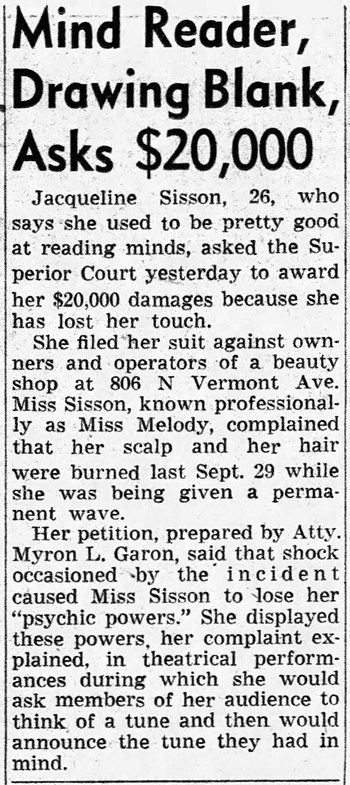
Los Angeles Times - Oct 12, 1950
Posted By: Alex - Sun May 21, 2023 -
Comments (0)
Category: Paranormal, Predictions, Lawsuits, 1950s
Mechanical Chiropractor
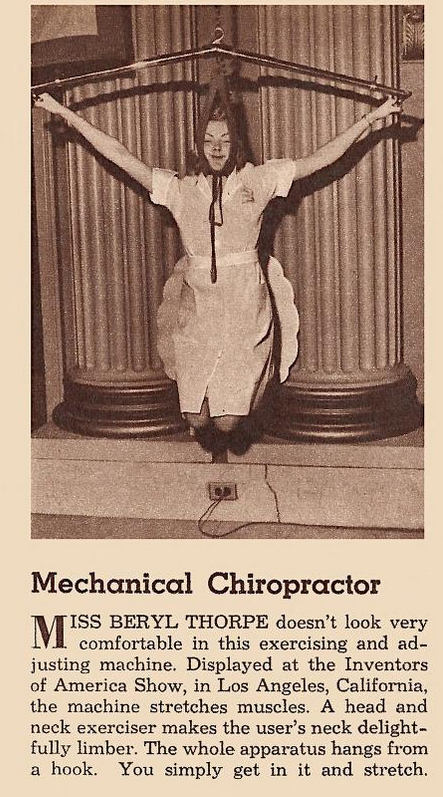
Source.
Posted By: Paul - Sun Apr 30, 2023 -
Comments (0)
Category: Health, Hobbies and DIY, Lawsuits, 1940s
Corner-Locked Lands
Oct 2021: Four hunters were charged with criminally trespassing on the Elk Mountain Ranch in Wyoming. The curious thing was that everyone, including the prosecution, agreed that the hunters had never set foot on the ranch. However, the owner of the ranch alleged that the bodies of the hunters had briefly passed through the airspace immediately above his ranch.OnXMaps.com explains:
The underlying issue was that of corner-locked public lands. Throughout the western states many public and private lands border each other in a checkerboard pattern. As a result, the only way to get to some public lands is via the corner. But you can't step over the corner from one public land to another without simultaneously having part of your body pass through airspace that's private property. And many private property owners strongly object to people doing this.
Some 8.3 million acres of public lands are estimated to be "corner-locked" in this way.
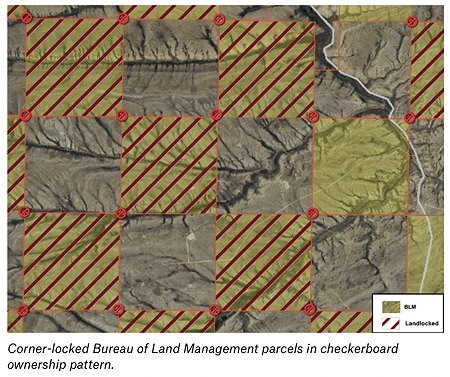
A jury eventually found the hunters not guilty of criminal trespass. But the owner of the ranch then filed a civil suit against them, which is still ongoing. He's seeking $9.39 million in damages for their violation of the airspace above his ranch.
More info: WyoFile.com
Posted By: Alex - Thu Jan 12, 2023 -
Comments (9)
Category: Geography and Maps, Lawsuits
The woman who sued God and won
On Aug 17, 1960, Betty Penrose's house in Phoenix was hit by lightning. Nine years later she sued God for damages — and won. Kinda. Sorta. Technically, what she won was the right to summon God to a trial which (assuming God would be a no-show) would have resulted in a default judgement against the deity.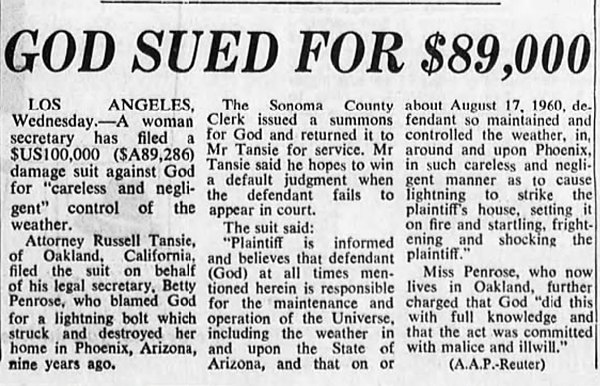
Sydney Morning Herald - May 15, 1969
Some additional context is necessary to understand Penrose's case.
Over in Sebastapol, California, singer Lou Gottlieb had been fighting the county government's attempt to shut down the hippie commune he had started on his Morning Star Ranch. As a legal maneuver to avoid paying the county's fines, Gottlieb deeded his land to God. Then he declared that the county could try collecting the fines from God.
This caused Phoenix attorney Russell Tansie, who was Penrose's employer, to realize that if God now legally owned property (the Morning Star Ranch), then God could be sued for damages. And that's how Penrose's suit emerged.
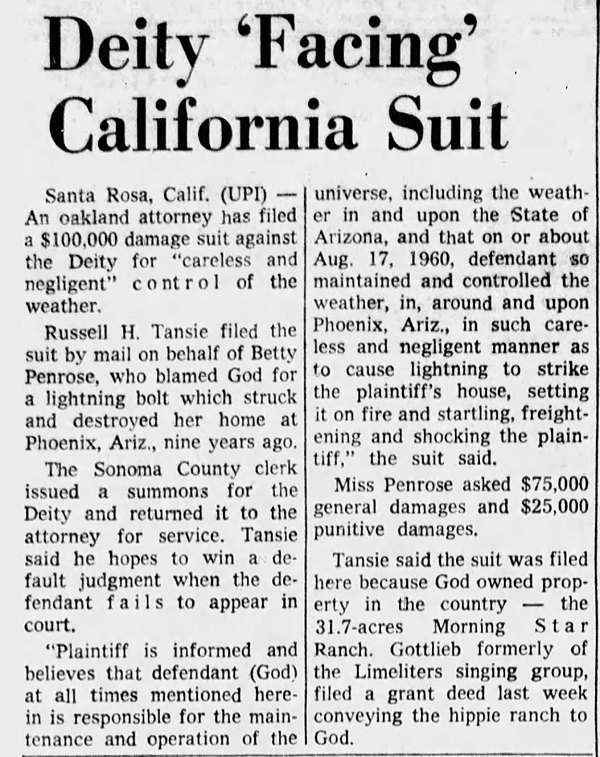
Indianapolis Star - May 14, 1969
However, I don't think Penrose's case ever made it to trial because, back in California, a judge had ruled that God, being neither a "natural or artificial person," could not legally own Gottlieb's ranch. So Gottlieb was still the owner and had to pay the fines.
And if God didn't own the ranch, then Penrose's case became moot.
But if Penrose's case had proceeded, it was possible God wouldn't have been a no-show. San Quentin prisoner Paul Yerkes Bechtel claimed to be God. So he might have appeared in court. And Joseph Njue of Kenya had also offered to defend God.
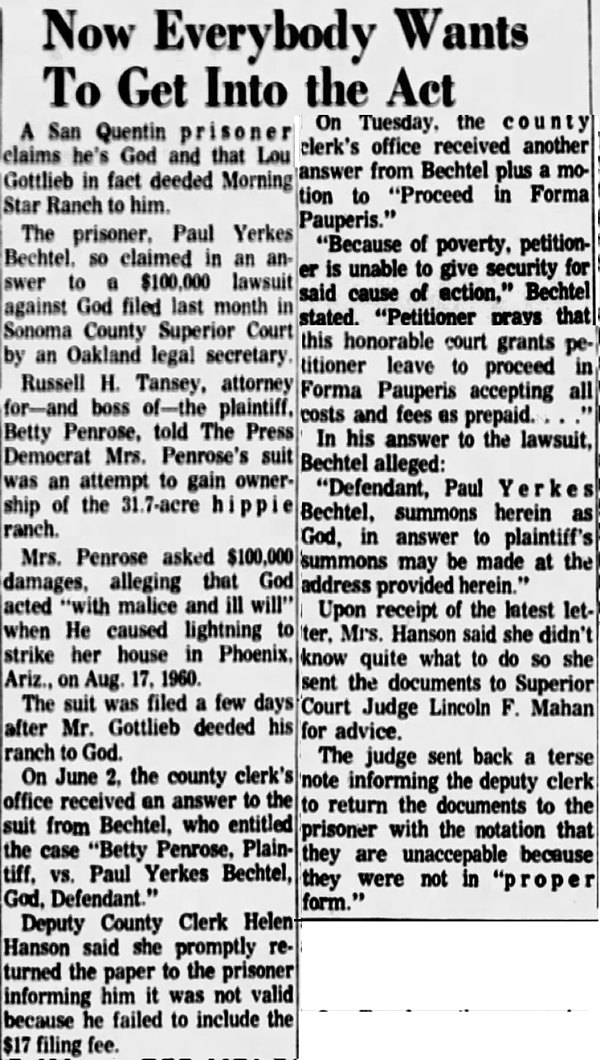
Santa Rosa Press Democrat - June 12, 1969

Arizona Republic - May 22, 1969
Posted By: Alex - Tue Dec 20, 2022 -
Comments (2)
Category: Religion, Lawsuits, 1960s, Arizona
The Disputed Measurements of Miss France
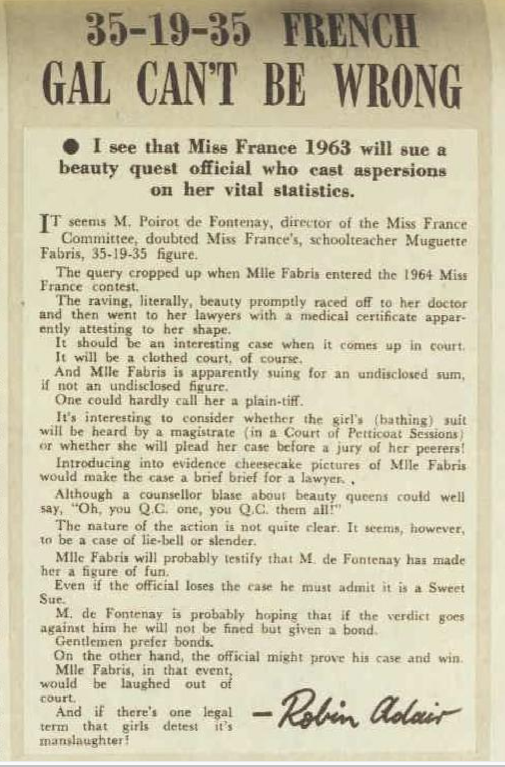
Article source.
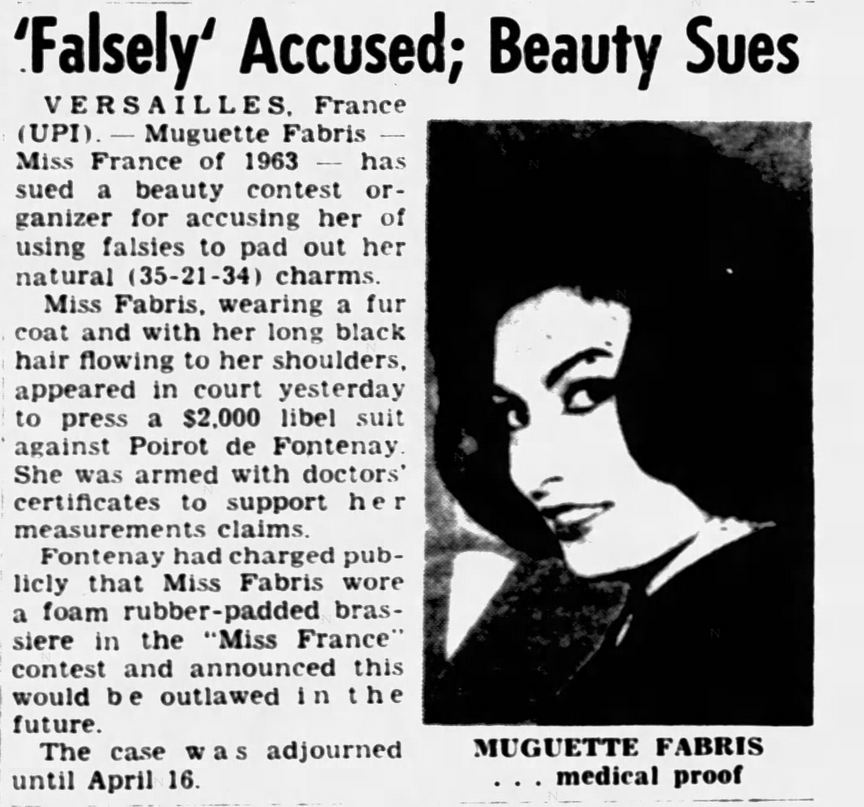
Article source: Philadelphia Daily News (Philadelphia, Pennsylvania) 07 Feb 1964, Fri Page 14
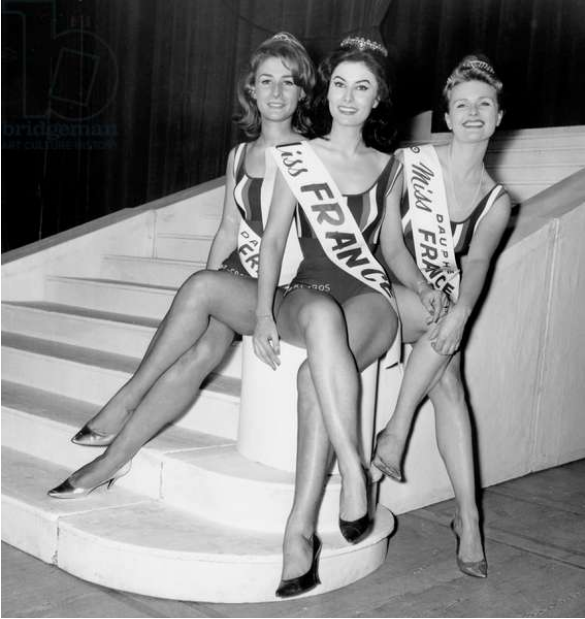
The New Miss France 1963 Muguette Fabris and her Dauphines Daniele Chevalier (L) and Michele Fourtain Povel (R) January 01, 1963
Posted By: Paul - Fri Jul 15, 2022 -
Comments (1)
Category: Awards, Prizes, Competitions and Contests, Beauty, Ugliness and Other Aesthetic Issues, Body, Lies, Dishonesty and Cheating, Lawsuits, 1960s
United States v. 350 Cartons of Canned Sardines
This case is known in legal circles primarily because of its odd name.It occurred in 1934 and involved 350 cartons of canned sardines shipped from California to Pennsylvania. The FDA examined some of the cans at its lab in Washington DC and decided that they contained "decomposed animal substance." Therefore, it ordered all 350 cartons to be destroyed.
The sardine company challenged this order in court. It lost the initial case, but won on appeal. Though, by that time, two years later, the sardines may already have been destroyed.
As far as I can tell, the case represented a power struggle between the California inspectors (who had approved the fish for shipment) and the federal ones. The FDA's decision seems to have been somewhat arbitrary. Its inspector decided the fish were decomposed not because of how they smelled or tasted. He said they smelled fine. He concluded they were 'decomposed' simply because they looked slightly pink — which was probably because they had been cooked in tomato sauce.
Read more about the case here.
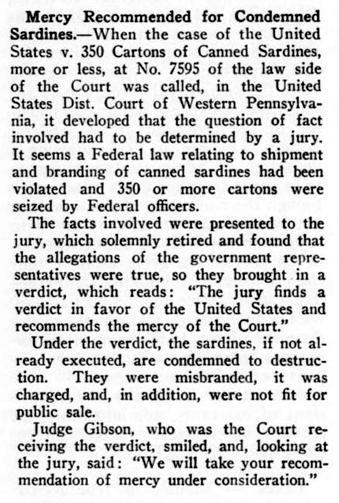
Case and Comment - Autumn 1934
Posted By: Alex - Wed Jul 13, 2022 -
Comments (2)
Category: Odd Names, Lawsuits, 1930s
Wolfe v. Feldman
Peter Ackerberg, writing in the Minneapolis Star (Nov 17, 1979), described the unusual legal case of Wolfe v. Feldman, which was heard in 1936:Feldman countered that it wasn't his fault, and he told the judge this story:
Wolfe was strapped to the dentist's chair (apparently a common procedure then), and was given nitrous oxide, an anesthesia better known as laughing gas. What happened next was no laughing matter.
The next part of the story is best summarized in the text of the case itself:
So the patient, while under the influence of laughing gas, managed to grab hold of the dentist's testicles, and in the process of freeing himself the dentist fractured her little finger.
Nevertheless, the judge ruled in favor of the patient for $650, saying:
Posted By: Alex - Tue Apr 26, 2022 -
Comments (0)
Category: Lawsuits, 1930s, Teeth
The Sauna Bath Nymphomaniac
The case of the cable car nymphomaniac is a classic weird news story. Less well known, but along similar lines, is the case of the sauna bath nymphomaniac.Maria Parson claimed that the trauma of being accidentally locked in a sauna for half-an-hour due to a faulty door handle caused her to develop a split personality. She came to have three personalities: "sex-hungry Maria" who prowled bars picking up men, "remorseful Betty" who bitterly resented Maria's escapades, and her submerged real self.
She sued the health spa for $1 million, but lost — even though she was represented by the same lawyer who had secured a win for the cable car nymphomaniac.
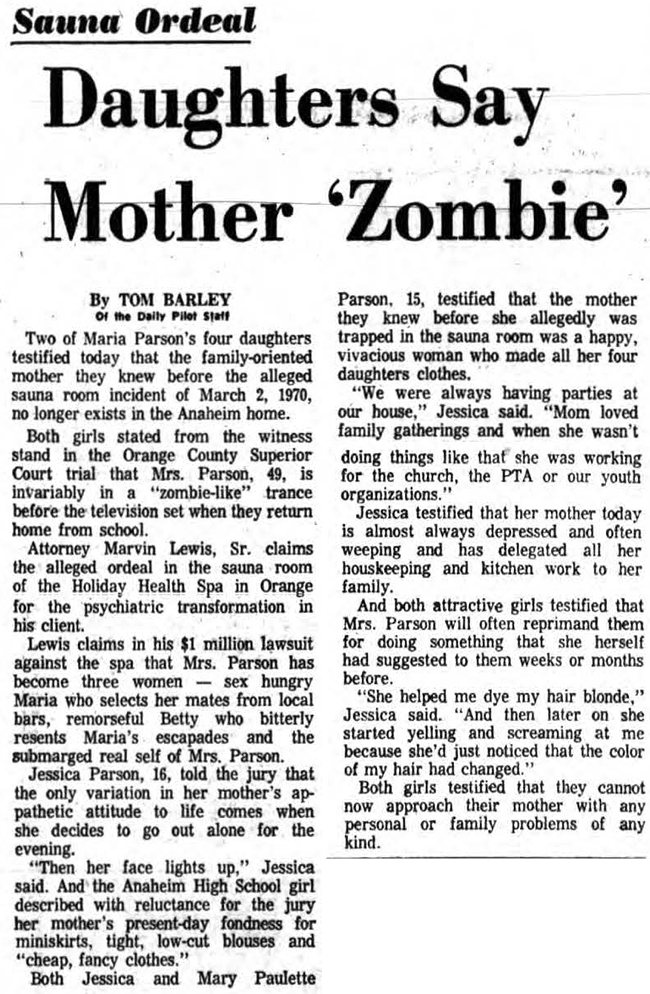
Orange Coast Pilot - Dec 20, 1973
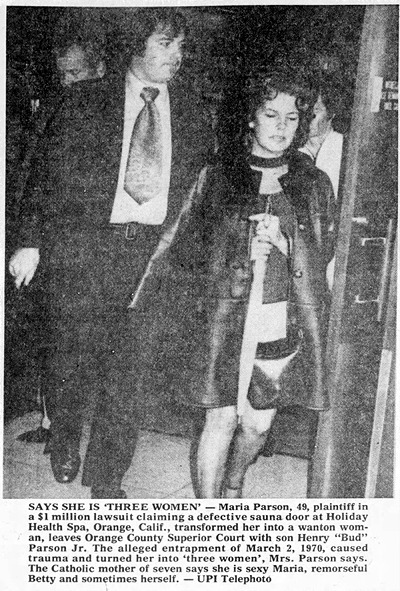
Bellingham Herald - Jan 10, 1974
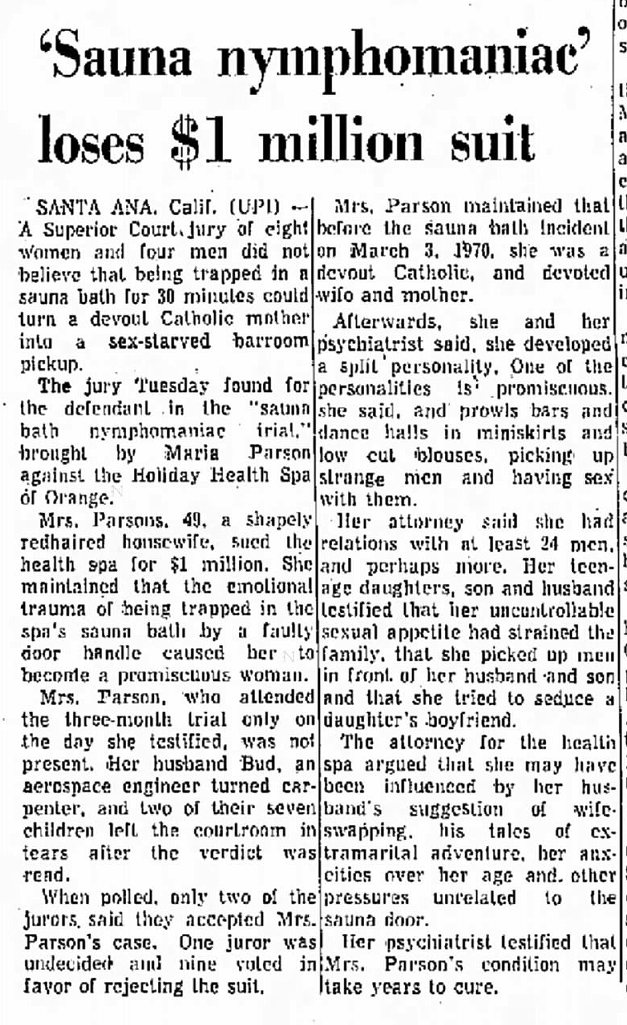
Eureka Times Standard - Mar 6, 1974
Posted By: Alex - Wed Apr 20, 2022 -
Comments (1)
Category: Lawsuits, Psychology, 1970s, Sex
Why Velna Turnage sued Christy Brothers Circus
From the case Christy Bros. Circus v. Turnage heard in the Georgia Court of Appeals, dated Sep. 15, 1928:Velna Turnage was awarded $500 for her "humiliation and embarrassment".
Posted By: Alex - Wed Apr 13, 2022 -
Comments (6)
Category: Lawsuits, Excrement, 1920s
Understanding the Law: The Worm
Understanding the Law: The Worm, Diane Obomsawin, provided by the National Film Board of Canada
Posted By: Paul - Sun Feb 13, 2022 -
Comments (2)
Category: Law, Lawsuits, PSA’s, Cartoons, 1990s

| Who We Are |
|---|
| Alex Boese Alex is the creator and curator of the Museum of Hoaxes. He's also the author of various weird, non-fiction, science-themed books such as Elephants on Acid and Psychedelic Apes. Paul Di Filippo Paul has been paid to put weird ideas into fictional form for over thirty years, in his career as a noted science fiction writer. He has recently begun blogging on many curious topics with three fellow writers at The Inferior 4+1. Contact Us |




